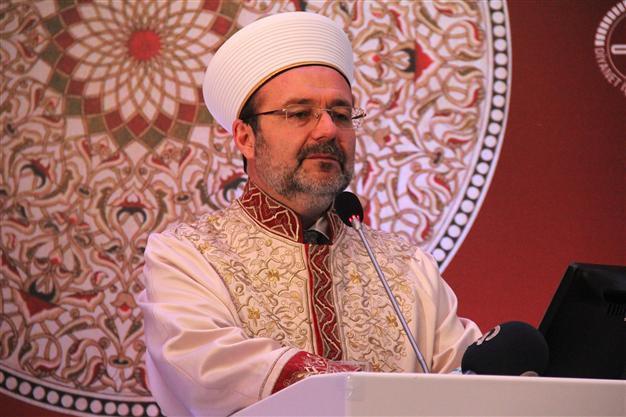Turkey’s top cleric warns Austria over draft on Islam
ANKARA

DHA Photo
Austria will turn the clock back a century if it approves a draft law on Islam scheduled to be voted on in Austria’s parliament on Feb. 25, Turkey’s top cleric has suggested.Each country in Europe has recently been in an effort to create its own version of Islam, President Mehmet Görmez of the Directorate General for Religious Affairs (Diyanet) said in a written statement released late Feb. 24.
“Religion is not an issue of engineering. I would like to indicate that efforts by national leaders to create their own version of Islam are efforts in vain,” Görmez said, arguing that the move would set the Alpine country back a century.
Religious sensibilities are on the rise in Austria. The government has proposed requiring standardized German-language translations of the Quran and prohibiting foreign funding of Muslim organizations on its soil in a draft law aimed in part at tackling militants.
The initiative follows alarm over official estimates that about 170 people from Austria have joined up with Islamist militant forces fighting in the Middle East.
“Addressing all our friends and all governments not only in Austria but also in Europe, I would like to say the following: I have been bemusedly watching the efforts by each country to create their own versions of Islam, which would only bring Europe to a dead-end, while they should be paying attention to the issues particularly arising out of minority and integration policies and the weakening of culture of living together and take more significant precautions against advancing Islamophobia,” Görmez said.
“Countries come together from time to time on the grounds of security concerns and try to construct a version of Islam peculiar to their own countries, rather than increase the freedoms that would lead to unity and remove obstacles before the religious education and services, and make an effort to remove anti-Islamic sentiments and Islamophobia. There is no scientific, ethical or historical value of this effort and it is wrong,” he added.
Görmez’s statement also outlined key provisions of the draft: Because of the foreign financing ban with the draft, the needs of Austrian mosques and their personnel’s wages will need to be met through domestic sources. The clause will especially affect Turkish religious officials, as the draft prevents a religious official of another country from working as a civil servant.
“We have been conducting religious services for our citizens in Austria and contributing to religious education services for nearly 30-40 years within the framework of the relations between the Presidency of Directorate General for Religious Affairs and the Turkish Islamic Union of Europe (ATIB), which renders services for our citizens who migrated from Turkey to Austria. Frankly, not a single incident that could cause unease in Austria has been experienced so far within the framework of this cooperation,” Görmez said.
“One should search for the ways to build the future together with the Muslim citizens who live there. As a member and representative of an institution, which has been conducting religious services for 40 years at the center of Europe, we will continue to provide support and assistance as we have done until today. If faculties of theology are to be opened, then we will support them. New faculties were already opened in several places. These faculties must be opened with a scientific aim, not as a part of a security or integration policy. Countries cannot have their own version of Islam. Islam is universal and its sources are clear. Therefore, religion is not a matter of engineering. I would like to restate that efforts taken by state leaders to create a version of Islam that is particular to their own countries are futile,” he said.
















